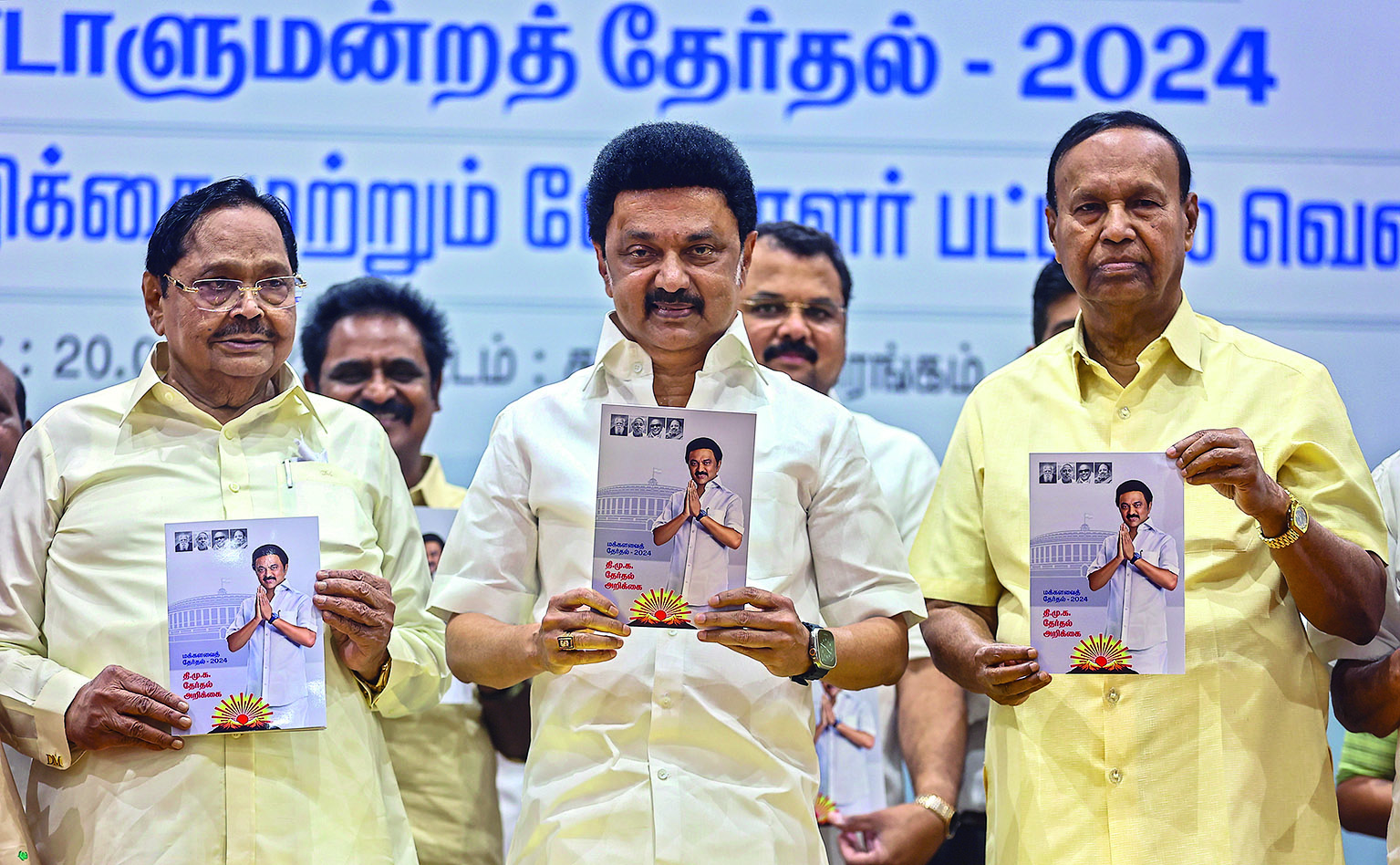DMK vows to repeal CAA if INDIA bloc is voted to power
Also, it announces that if voted to power, INDIA bloc will withdraw the ‘Agnipath’ scheme and reintroduce permanent recruitment service in Indian Armed forces

: Tamil Nadu’s ruling DMK, a key constituent of the INDIA bloc, in its manifesto released on Wednesday promised to repeal the Citizenship Amendment Act, 2019 if the opposition alliance wins the Lok Sabha polls.
Restoration of statehood to Jammu and Kashmir and holding polls there, scrapping the New Education Policy 2020, slashing fuel prices, annulling Article 361 of the Constitution that provides protection to governors from legal action and appointment of Governors following consultation with Chief Ministers, were among the key promises made by the DMK. The recommendations of the M S Swaminathan committee will be adopted to ensure that MSP for agricultural products “is set at total production cost plus 50 per cent,” the DMK said.
Also, it announced that if voted to power, the INDIA bloc will withdraw the ‘Agnipath’ scheme and reintroduce “permanent recruitment service” in the Indian Armed forces.
“From now on, population census, including caste-wise census and census concerning people below the poverty line, will be conducted by the Union government once every five years simultaneously.”
The DMK will firmly insist on the removal of Article 356, which allows the dismissal of duly elected state governments and imposition of the President’s rule.
The Congress party’s ally in Tamil Nadu said that “new constraints” on States’ borrowing capacity, imposed by the union government beyond the limits in each state’s FRBM-equivalent Act will be eliminated.
“A recommendation to share cess revenues with states will be made. It will be proposed that the Finance Commission increase the horizontal devolution of tax revenue (to all States together) from 42 per cent to 50 per cent.” The Union government’s financial contributions to states will be based on the income tax and GST collected in those states. Thus, financial contributions will be assured based on the taxes collected within each state.



